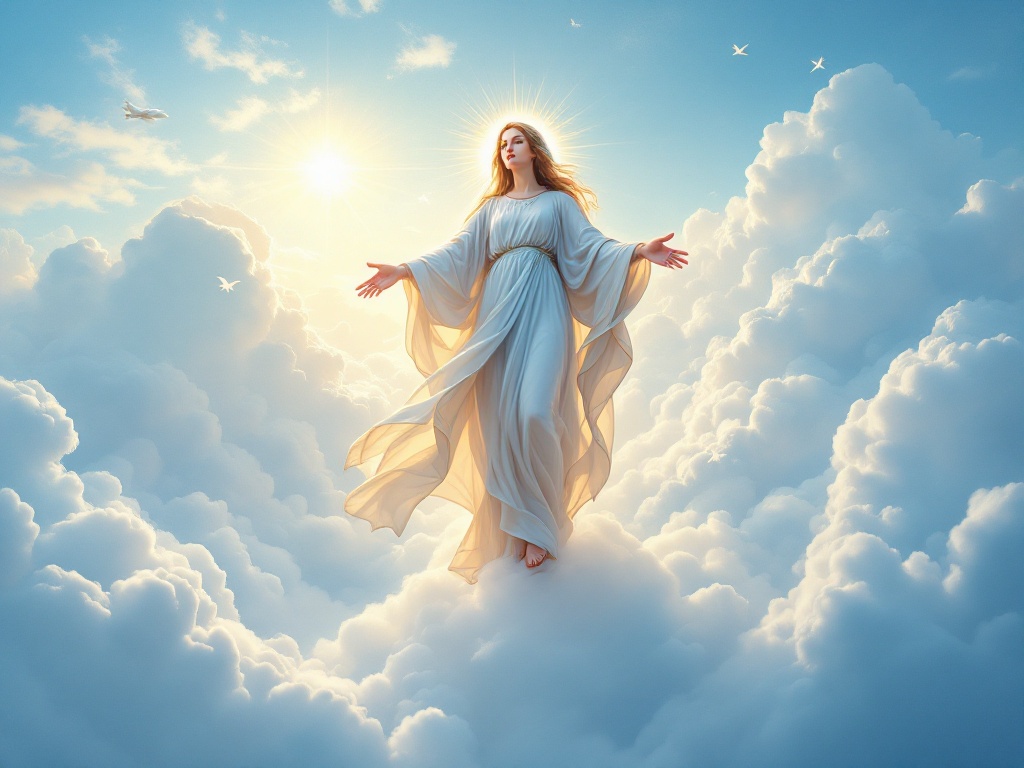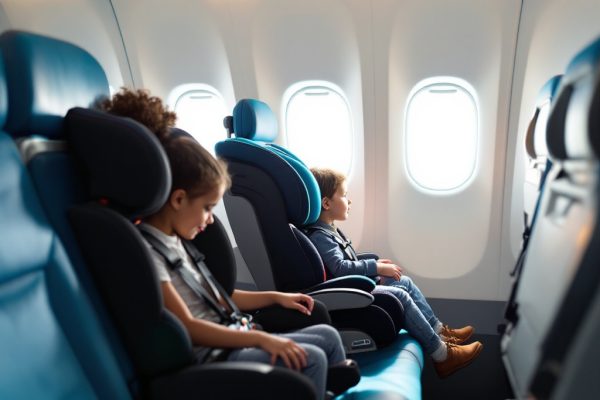Who is the Patron Saint of Air Travel?
Soaring through the skies? Discover the fascinating history of aviation’s patron saints, like Our Lady of Loreto, whose legendary journey makes her the protector of air travelers. Learn about other saints who watch over pilots, flight crews, and all those who journey by air. Explore the comforting role these figures play in modern aviation, offering spiritual guidance and peace of mind. Read on to find your own patron saint of the skies.
Important information

- Our Lady of Loreto is the patron saint of aviation and air travelers.
- Saint Thérèse of Lisieux is the patron saint of pilots.
- Saint Christopher is the patron saint of all travelers.
- Saint Barbara is the patron saint of helicopter pilots, protecting against fire and lightning.
- Patron saints offer comfort and spiritual guidance to those in aviation, including pilots, crew, and passengers.
Who is the Patron Saint of Air Travel?
Air travelers are under the watchful eye of Our Lady of Loreto, the patron saint of aviation. She is associated with the Holy House of Loreto, which, according to legend, was carried by angels. This captivating tale adds to the mystique surrounding air travel.
Our Lady of Loreto: The Patron Saint of Air Travelers
Our Lady of Loreto, revered as the patron saint of aviation, offers protection to all who travel by air. The Catholic Church recognizes her connection to flight, a belief stemming from the story of angels transporting her home, the Holy House, from Nazareth to Loreto, Italy. This miraculous journey cemented her role in aviation history.
Saint Thérèse of Lisieux: Patron Saint of Pilots
Aviators often seek Saint Thérèse of Lisieux’s protection, as she is their patron saint, offering spiritual guidance during flight.
Other Patron Saints Related to Aviation
Travelers seek Saint Christopher’s protection, as he is their patron saint. Helicopter pilots, on the other hand, look to Saint Barbara for their safeguard.
Saint Christopher: Patron Saint of All Travelers
Travelers seek Saint Christopher’s protection, as he is their patron saint. The story of him carrying the Christ child across a river symbolizes safe passage and embodies his guardianship over all who journey.
Saint Barbara: Patron Saint of Helicopter Pilots
As the patron saint of helicopter pilots, Saint Barbara offers protection against fire and lightning. This is crucial because these dangers pose significant threats to aviation.
The Significance of Patron Saints in Modern Aviation
In modern aviation, patron saints serve as vital spiritual protectors for everyone on board, from the pilots and crew to the passengers. They offer comfort, hope, and a sense of security, especially during turbulent or otherwise challenging situations. Pilots and crew frequently seek guidance and protection from these saints, which strengthens their faith and provides emotional support during stressful flights. Passengers also find solace in the belief that patron saints offer protection, bringing peace of mind during air travel.
Spiritual Guidance for Pilots and Flight Crews
Pilots and flight crews often find comfort in their faith during flights. For example, pilots may pray to Saint Joseph of Cupertino for protection and guidance. Flight crews frequently seek the intercession and reassurance of Our Lady of Loreto, the patron saint of air travelers.
Prayer and Devotion in Aviation
Many pilots and flight crews find comfort and strength in prayer and devotion in the demanding world of aviation. Some engage in these practices before takeoff, others during flight, and still others upon landing. Many carry religious items, such as medals or icons, while others recite prayers or mantras. These rituals offer peace and reassurance, helping them cope with the inherent stresses of flying. While aviation has become significantly safer, the potential for danger can heighten a sense of connection to a higher power, providing comfort and guidance. Ultimately, prayer and devotion remain deeply personal choices, offering solace and fortitude in the face of challenging circumstances.









